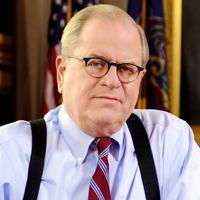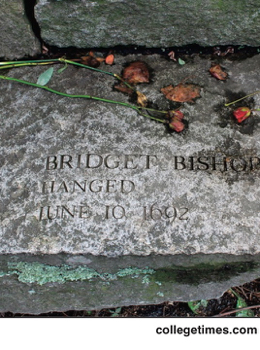Rascals case in brief
In the beginning, in 1989, more than 90 children at the Little Rascals Day Care Center in Edenton, North Carolina, accused a total of 20 adults with 429 instances of sexual abuse over a three-year period. It may have all begun with one parent’s complaint about punishment given her child.
Among the alleged perpetrators: the sheriff and mayor. But prosecutors would charge only Robin Byrum, Darlene Harris, Elizabeth “Betsy” Kelly, Robert “Bob” Kelly, Willard Scott Privott, Shelley Stone and Dawn Wilson – the Edenton 7.
Along with sodomy and beatings, allegations included a baby killed with a handgun, a child being hung upside down from a tree and being set on fire and countless other fantastic incidents involving spaceships, hot air balloons, pirate ships and trained sharks.
By the time prosecutors dropped the last charges in 1997, Little Rascals had become North Carolina’s longest and most costly criminal trial. Prosecutors kept defendants jailed in hopes at least one would turn against their supposed co-conspirators. Remarkably, none did. Another shameful record: Five defendants had to wait longer to face their accusers in court than anyone else in North Carolina history.
Between 1991 and 1997, Ofra Bikel produced three extraordinary episodes on the Little Rascals case for the PBS series “Frontline.” Although “Innocence Lost” did not deter prosecutors, it exposed their tactics and fostered nationwide skepticism and dismay.
With each passing year, the absurdity of the Little Rascals charges has become more obvious. But no admission of error has ever come from prosecutors, police, interviewers or parents. This site is devoted to the issues raised by this case.
On Facebook
Click for earlier Facebook posts archived on this site
Click to go to
Today’s random selection from the Little Rascals Day Care archives….
Click for earlier Facebook posts archived on this site
Click to go to
Today’s random selection from the Little Rascals Day Care archives….
Is psychiatry ready to face up to its denial?
 Feb. 1, 2014
Feb. 1, 2014
“As our medical schools and graduate programs fill with students who were born after 1989, we meet young mental health professionals-in-training who have no knowledge or
living memory of the Satanic ritual abuse (SRA) moral panic of the 1980s and early 1990s. To those of us old enough to have been there, that era already seems like a curious relic of the past, bracketed in our memory palaces behind a door we are loathe to open again.
“Some mass cultural phenomena are so emotionally-charged, so febrile, and in retrospect so causally incomprehensible, that we feel compelled to move on silently and feign forgetfulness…
“Despite the discomfort it brings, we owe it to the current generation of clinicians to remember that an elite minority within the American psychiatric profession played a small
but ultimately decisive role in the cultural validation, and then reduction, of the Satanism moral panic between 1988 and 1994….
“Are we ready now to reopen a discussion on this moral panic? Will both clinicians and historians of psychiatry be willing to be on record?”
– From “When Psychiatry Battled the Devil” by Richard Noll in Psychiatric Times (Dec. 6, 2013)
Wow! After more than two years of seeing mental health professionals shrug off responsibility for the moral panic they promoted, I can hardly believe what I’m reading. Noll, an accomplished author and professor, traces how it all happened – and asks, “Shall we continue to silence memory, or allow it to speak?”
An early vote to silence memory came from an unexpected source: Psychiatric Times itself, which clumsily pulled Noll’s piece from its website.
By contrast, Allen Frances, professor emeritus of psychiatry at Duke, offered a powerful – and I hope influential – personal mea culpa.
It’s not mistakes that obstruct justice. It’s the refusal to admit them.
May 21, 2018
“Cops, district attorneys, defense attorneys, and judges make mistakes all the time. Mistakes don’t obstruct justice. Justice is obstructed by refusing to acknowledge and rectify mistakes, and instead doubling down on and repeating them….”
– From “For a small, blue state, Massachusetts wrongfully convicts a lot of people” by George Bullen at 50 States of Blue (Jan. 30)
The prosecution of the Edenton Seven blew through one red light after another, willfully blind to the enormous mistakes it had made and hell-bent on making even more.
![]()
Prosecutorial arrogance – it’s forever!

news.psu.edu
Ronald Castille
March 1, 2016
“It would be hard to imagine a more glaring judicial conflict of interest than the one the Supreme Court considered in a case out of Pennsylvania on Monday.
“In 1986, Terrance Williams was convicted of killing a man named Amos Norwood with a tire iron when he was 18. Prosecutors in the Philadelphia district attorney’s office sought the death penalty, and got it….
“A state court found that the prosecutors had lied, and vacated Mr. Williams’s sentence. But the Pennsylvania Supreme Court unanimously reversed that ruling. The court’s chief justice at the time, Ronald Castille, wrote a concurring opinion criticizing the lower court’s ruling for ‘condemning’ the prosecutors.
“The problem was that Mr. Castille himself led the district attorney’s office when it prosecuted Mr. Williams, and personally authorized seeking the death penalty in that case…. Nevertheless, he refused to recuse himself from Mr. Williams’s case….”
– From “Should a Judge Rule on His Own Case?” editorial in the New York Times (Feb. 29)
Meanwhile in North Carolina, prosecutors yet again show great interest in maintaining their conviction rate and little if any in ensuring justice has been done (text cache).
![]()
Excuses for denying exoneration (Salem version)
 July 21, 2015
July 21, 2015
“When Massachusetts exonerated the Salem victims in 1710 it overlooked six women. They remained missing through the 1940s and 1950s as the commonwealth considered pardons but could not seem to make up its legislative mind.
“One lawyer appearing before a Senate committee objected to ‘fooling with history.’ Some legislators feared expensive suits for damages. Others hinted that a pardon might knock Salem’s witches from their tourist-bewitching brooms. As the Commonwealth of Massachusetts had not existed in 1692, it surely had no jurisdiction over a verdict of Massachusetts Bay.
“On Halloween 2001 – weeks after we began to wonder anew about unseen evils – Massachusetts pardoned the last of the Salem witches….”
– From “The Witches: Salem, 1692” by Stacy Schiff (due Oct. 27)











0 CommentsComment on Facebook